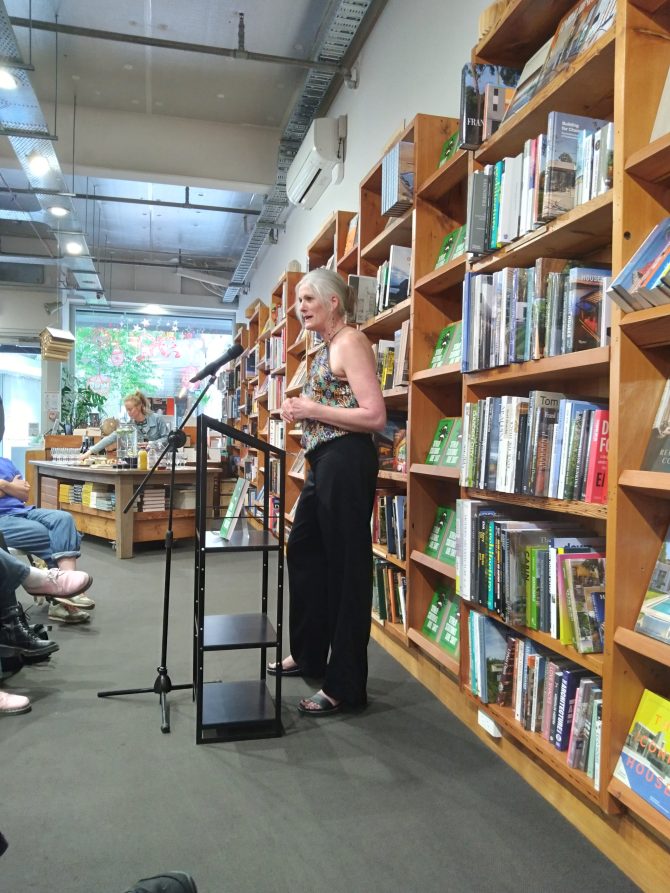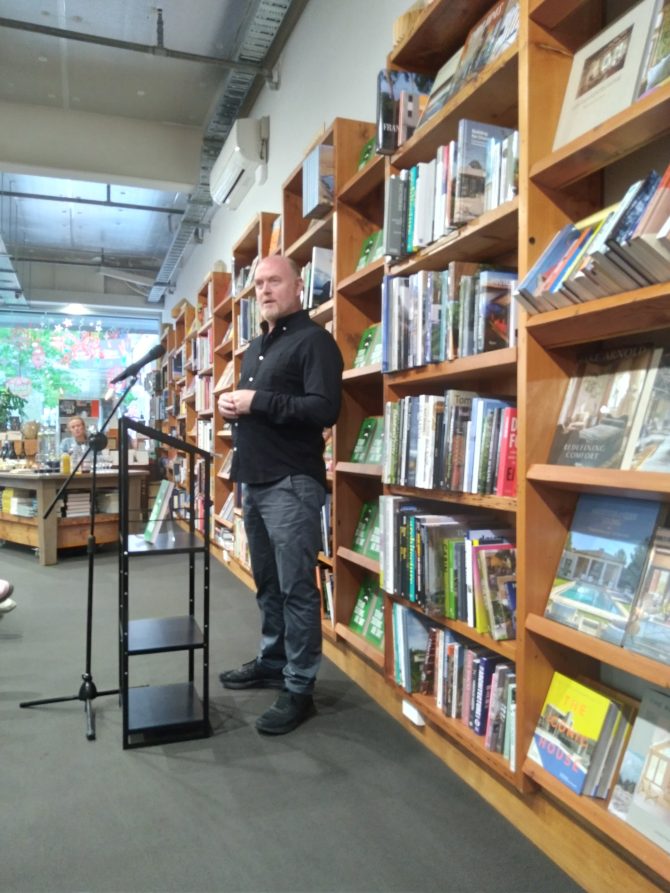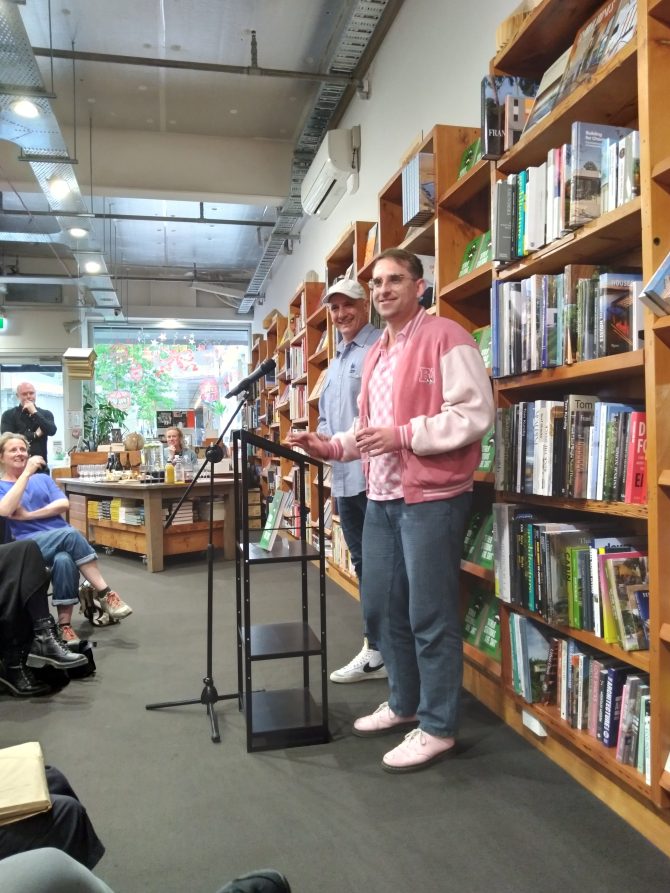Other Stations are Shit: Student Radio in Aotearoa New Zealand was launched at Scorpio Books on Tuesday evening, celebrating over fifty years of student radio in New Zealand.
'Other Stations Are Shit': Student Radio in Aotearoa New Zealand
Authors Matt Mollgaard and Karen Neill were introduced by Emma Johnson from Freerange Press, who described student radio as the 'coalface where variety happens...a place to gather and practice culture.'
The first half of this unique book documents the development of this idea, while part two is thematic, says Emma; looking at the whānau of people in student radio, and its future.
When I was a student, Student Radio was a welcome alternative to what we used to call 'Ugly Radio' - commercial radio stations with mainstream pop music, with, well, commercials. It was, and still is, a platform for experimentation and socialising. All those involved, from volunteers, stakeholders, listeners and funders, worked to impact the cultural landscape of Aotearoa.
bFM was conceived during capping in 1969 as a pirate station, broadcasting from a boat in the Waitematā. From there stations funded by students' associations popped up in universities all over New Zealand. Student radio stations nurtured DJs, promoted local and homegrown bands and played a large quota of Kiwi music.
Broadcasts on student radio stations often included live gigs, some performed in the cramped spaces of the station. And shenanigans. Shhhh.
Author Karen Neill began her career volunteering at RDU here in Christchurch. She went on to work at 1XX in Hastings and is now the Programme Leader for the Bachelor of Communication degree at the New Zealand Broadcasting School. 1XX, she says, is, after fifty years, New Zealand's last private radio station.
Student Radio was about community, culture, music and training. It's a celebration of local art. Our nation's richly visual culture of home-made band and gig posters is depicted in the book.
RDU, says Neill, kept information flowing after the quakes, and during Covid. Each station chronicled in the book had its own challenges but was all about people and music, making local music a priority and instrumental in pressuring government to introduce quotas of Kiwi music in all radio in New Zealand.
Dr Matt Mollgaard has thirty years' under his belt in radio: working, teaching, researching and publishing about issues in the sector. He is HOD of the Department of Screen, Audio and Journalism at the School of Communication Studies in Auckland University of Technology. In 2022 the authors devised a survey to review student radio for NZ On Air, and this book was born.
The survey went out to a hundred or so people, gleaning information about the importance of local media, its sense of whanau and community. Student radio stations were identified as a place of belonging, says Mollgaard; a safe place to play great local music and find information. Other Stations Are Shit is not a history, he says, because 'that would be as boring as batshit.' The book is 'student radio as it is now, and what it could be in the future.'
Mollgaard reinforces Neill's view that student radio is about community, culture and people creating meaningful media. For him it was a joy to talk to people in the sector about radio.
My formative years were influenced by student radio: Radio Massey, in its various forms - RadMass, Radio Control. My big brother is five years older than me and played bass in a band (Clearlight) in our garage, and I was tuning into Radmass from about the age of 11. As senior students at Feilding Ag, we would drive the prefects out of our common room with questionable songs from The Cramps.
Like student newspapers, student radio is a platform for politics, feminism and human rights, advocacy and entertainment. Young people could learn the ropes there, before pursuing careers in music, television or journalism. Some would go on to write for music magazines like Rip It Up, move sideways into promotion or commercial radio, or go on to create underground homegrown companies like Phantom Billstickers.
The book, groundbreaking in its content, is produced by Freerange Press, a collaborative publishing house operating out of Christchurch, and focussed on an interdisciplinary approach to subject matter.
We have matured to an age where those who were involved in the scene are preserving those memories - last year saw the publication of Needles and Plastic, celebrating Flying Nun bands past and present, and the production of Hellzapoppin! the art of Flying Nun accompanied by a wonderful exhibition of forty years of the Flying Nun record label, at Christchurch Art Gallery.
I love that my generation's history, rebelliousness and creativity is now the subject of archives. Student Radio has come of age. May it endure well into the future.
The last word went to RDU's current Station Director James Meharry and breakfast DJ Liam Donnelly, representing the five stations chronicled in the book: bFM (Auckland) Radio Control (Massey) Radio Active (Victoria), RDU (Canterbury) and Radio One (Otago). RDU is celebrating its fiftieth year in 2024, and has preserved its own archive of unique moments in New Zealand music:
'When did you last read a book that talked about the future of radio?"







Add a comment to: Other Stations are Shit: Student Radio in Aotearoa New Zealand